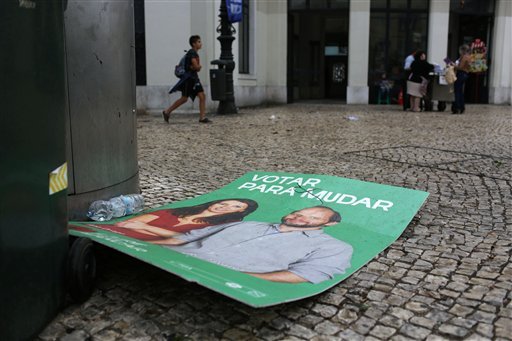New Portuguese minority government brings political tension
The secretary-general of Portugal’s Socialist Party (PS), António Costa, will at a meeting of the party’s national political committee on Tuesday call for a congress to decide on the leadership and what strategy the party should follow after its loss of Sunday’s general election, a PS spokesman told Lusa on Monday.
LISBON, Portugal (AP) – Senior Portuguese officials are starting the delicate task of installing a stable government after a general election that complicated as much as it clarified the country’s future. The head of state is usually a symbolic fringe figure, with no executive power, but now plays a central role in efforts to find a political accommodation. But it will be outnumbered by left-of-center parties in the 230-seat Parliament where it is shy of a 116-seat outright majority. Four seats for emigrant constituencies have yet to be allocated.
The main opposition Socialist Party, a moderate center-left force that supports eurozone financial rules, came second just over 32 percent and 85 seats and could hold the key to the government’s success.
With Portugal still recovering from its 78 billion-euro ($88 billion) bailout in 2011, the uncertainty could spell another bout of market jitters over the debt-heavy eurozone country.
The election “will further constrain the potential for structural economic reforms and increase risks to the fiscal outlook”, said Eurasia Group analyst Federico Santi, adding the “likelihood that the new legislature will not reach the end of its four-year term is quite high”. Passos Coelho said he was ready to form a government while suggesting he may have to compromise on policies.








